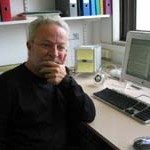Link to Pubmed [PMID] – 1777417
Int. Immunol. 1991 Dec;3(12):1207-16
Parasite infection causes marked perturbations in the host immune system, as shown by hypergammaglobulinemia, autoimmunity and immune depression, but there is little information on the number, specificities and performance of B cell clones activated in the course of infection. We have addressed these questions in a model of murine malaria induced by Plasmodium chabaudi, where primary infection results in very marked B cell responses that shift in Ig isotype pattern in immunoprotected animals, and where immunity can be transferred to naive recipients by injection of serum from late, but not early, infection. We have quantitated B cells responding to infection in two distinct functional compartments, namely blast cells and Ig-secreting cells, and compared normal with immune animals. We have also determined the frequencies of clonal specificities towards several autoantigens (DNA, myosin, transferrin and red cells), non-self protein or polysaccharide antigens (KLH, levan and dextran), and parasite antigens in both compartments, by measuring blast cell reactivities in limiting dilution analyses and Ig secretion in ELISASPOT assays. This experimental design allowed us to assess the specificity of the B cell responses, to compare the clonal composition of these two B cell compartments, and to evaluate putative specific response regulation at the step of terminal differentiation. Our results show that, in this particular experimental system: (i) B cell responses in primary infection are truly non-specific while immune animals show a greater ability to control the massive non-specific response; (ii) parasite specific B cells, particularly those committed to IgG production, are selectively stimulated in immune individuals; (iii) autoreactive B cells are not selectively stimulated, but increased autoantibody production may result from perturbation in the control of terminal differentiation in the respective clones; (iv) clones with specificity to some non-self antigens (e.g. KLH and dextran) are selectively engaged and regulated, which might have implications for the immunosuppression following infection.

